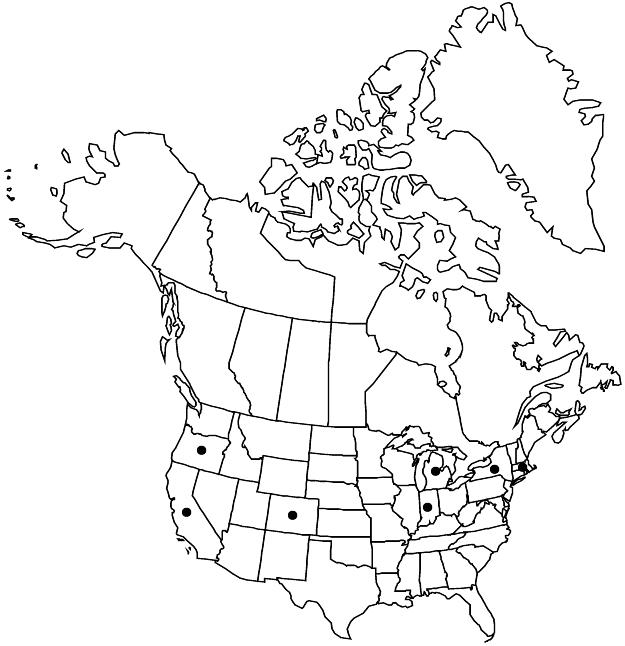Saponaria ocymoides
Sp. Pl. 1: 409. 1753.
Common names: Rock soapwort
Introduced
Revision as of 22:10, 5 November 2020 by imported>Volume Importer
Plants perennial, with over-wintering leafy shoots. Stems trailing, procumbent, or ascending, much-branched, 5–25 cm. Leaves: petiole not winged, (0.1–)0.5–1(–3) cm; blade 1-veined, spatulate to ovate-lanceolate, 0.6–2.5 × 0.3–1.4 cm. Cymes spreading, lax. Pedicels 2–6 mm. Flowers sometimes double; calyx usually purple, not cleft, 7–12 mm, glandular-pubescent; petals red or pink to white, blade 8–15 mm. Capsules 6–8 mm. Seeds 1.6–2 mm wide. 2n = 28 (Europe).
Phenology: Flowering summer.
Habitat: Waste sites, rocky places, old gardens
Elevation: 0-2200 m
Distribution

Introduced; Calif., Colo., Ind., Mass., Mich., N.Y., Oreg., Europe.
Discussion
Saponaria ocymoides is a long-cultivated rock-garden and wall plant that is only rarely persistent outside of gardens.
Selected References
None.
Lower Taxa
None.